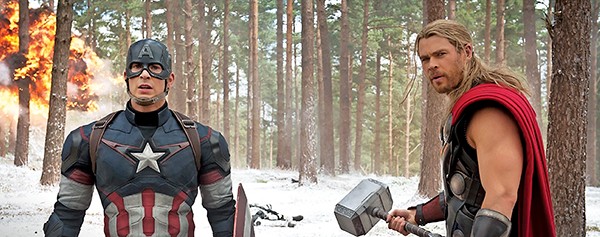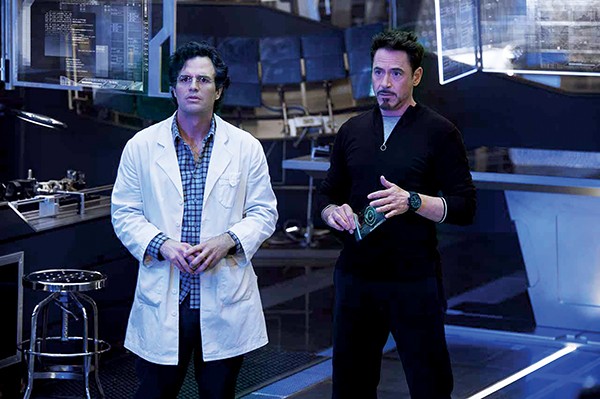The Paradiso is filling the traditional late summer movie doldrums with some repertory at the IMAX. For the last week it has been the spectacular presentation of 2001: A Space Odyssey providing an unparalleled cinema experience. This week, Marvel Studios is celebrating their 10th anniversary with an IMAX marathon. In the Marvel spirit of giving people what they want, here are 10 highlights from the 20 Marvel movies, arranged in the form of a numbered list to give it that little bit of extra narrative tension. Everybody loves lists, right? Let’s do this.
10. The Best Thing That Ever Happened to Marvel
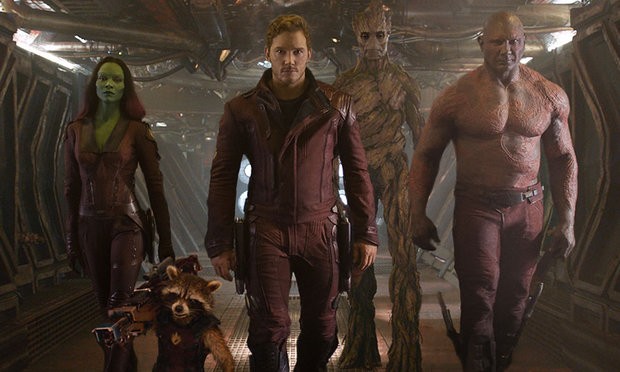
Back in the lean comic years of the 1980s, a struggling Marvel sold the film right to some of its creations. Marvel’s A-list superheroes, The X-Men, Spider-Man, and the Fantastic Four wound up with Fox or with the Sony corporate hegemony, where films of varying quality were made in the early 2000s that whetted the appetite for comic book films. When producer Kevin Feige took over in 2007, just as the studio’s business model was changing from licensing its intellectual property to making their own films, Marvel was forced away from their flagship heroes to mine deeper into comic history. This proved incredibly freeing, and opened up new opportunities. Guardians of the Galaxy (Saturday 3:40 p.m.), for example, was one of the most fun blockbusters of the past decade, even though it comes from one of the more obscure corners of the Marvel comics library.
9. Marvel’s Biggest Failure

Of the 20 films Marvel screening this Labor Day weekend, exactly one, Ant-Man and The Wasp (Monday, 10 PM) has a titular female lead. And Evangeline Lilly as The Wasp gets second billing to the worst lead actor in the entire Marvel universe, Paul Rudd. Black Widow, portrayed iconically by Scarlett Johansson, is arguably the most interesting Avenger. If Marvel had wised up and given her a solo movie five years ago, they could have stolen DC’s Wonder Woman thunder, and we could have possibly avoided the Ghost In The Shell debacle.
8. The Most Comic-Book-y Comic Book Movie
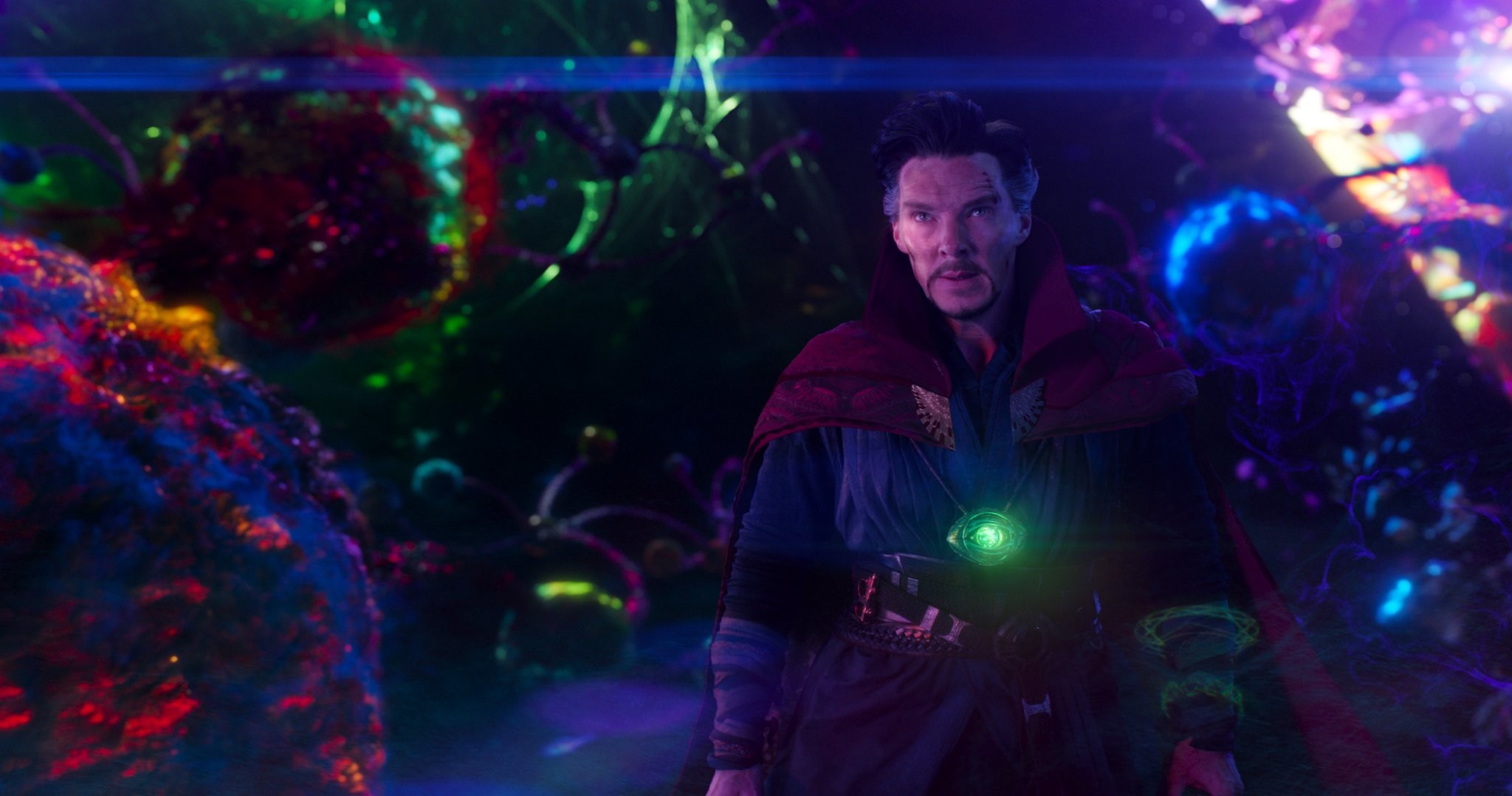
I’m going to offer the hot take that Christopher Nolan has been bad for the superhero genre. He successfully brought gritty realism to comic book movies, but in the process he sacrificed the comic book form’s biggest strength: outlandish visuals. Marvel films, especially the later ones, have embraced the possibilities of CGI. None have veered farther from photorealism than 2016’s Doctor Strange. Director Scott Derrickson channels the Sorcerer Supreme’s creator Stephen Ditko with wave after wave of psychedelic freak outs — while also lifting some licks from Nolan’s Inception for good measure.
7. You Need A Good Villain
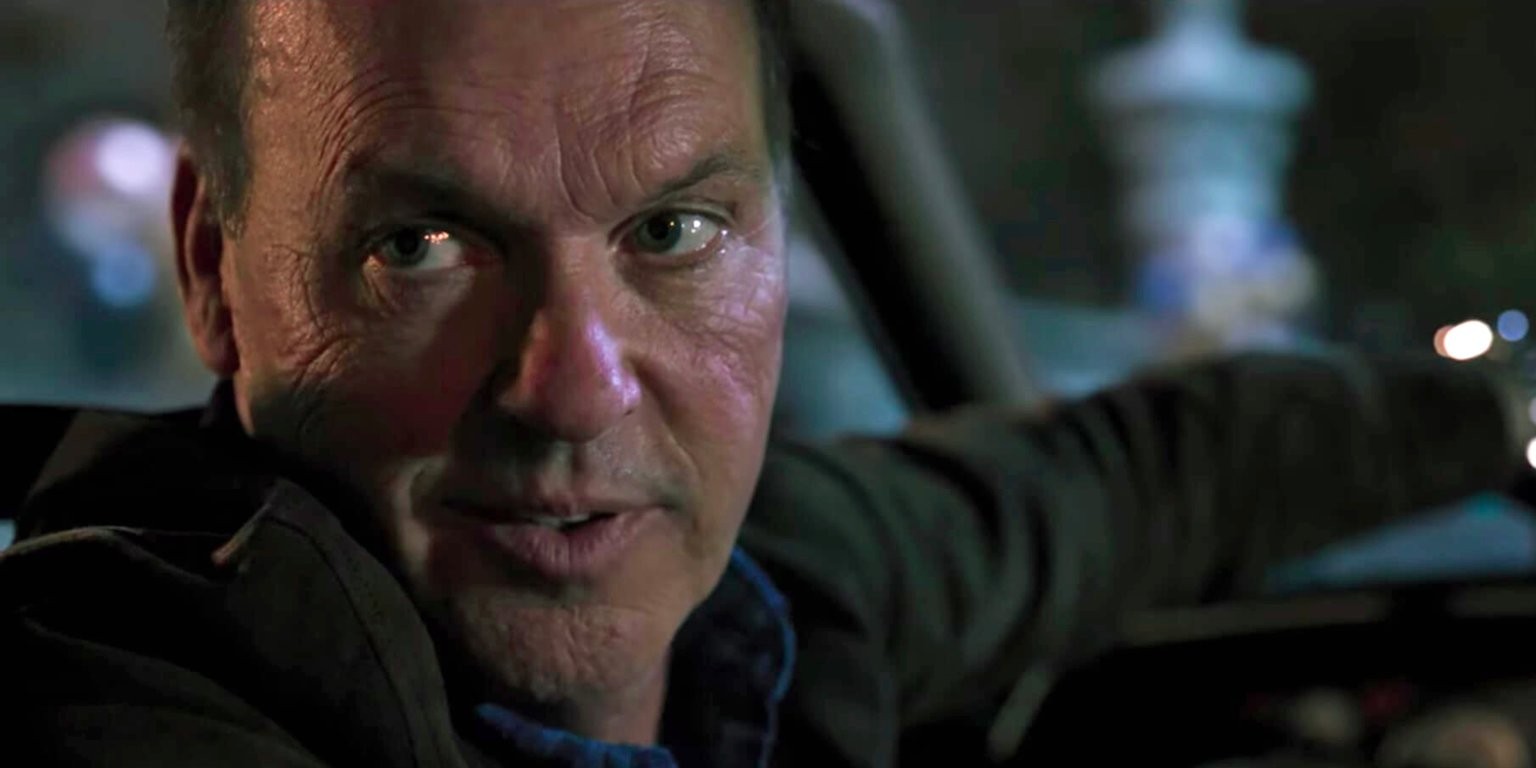
You know why Batman is everybody’s favorite superhero? Because he’s got the best villains. Superhero films live and die by the charisma of the bad guy, and the plausibility of their plan. The best recent example was Michael Keaton as Vulture in Spider-Man Homecoming (Sunday, 9:50 p.m.). The sotto voce threats he delivers to Tom Holland’s Spider-Man while Peter Parker is trying to bone his alter ego Adrian Tooms’ daughter Liz on homecoming night may be the single best acted scene in any Marvel movie.
6. The Guardians’ Secret Weapon

Who is the heart of the Guardians of the Galaxy sub-franchise? If you said ubiquitous hot guy Chris Pratt’s Star Lord, you’re mistaken. The correct answer is Karen Gillian as Nebula. Gillian has been low-key walking away with every movie and TV show she’s been in for the better part of a decade. She propped up Matt Smith’s mediocre Doctor Who for three years as Amy Pond, one of the best companions in the show’s 50-year history. Just last year she stole the Jumanji reboot out from under The Rock. Nebula, tortured and twisted and intensely physical, plays nemesis to her sister Gamora, and the scenes between Gillian and Zoe Saldana always crackle with emotion. When she reluctantly teams up with them, in Guardians of the Galaxy Vol. 2 (Sunday, 7 p.m.) her pouty sarcasm fits right in with the rest of the crew. In real life, Gillian just wrote and directed her first feature film, The Party’s Just Beginning.
5. The Third Act

The “Marvel Third Act” has become a shorthand for a big ending where our colorful heroes fight a horde of grey, identical monsters, with lots of attendant property damage, but no consequences for the heroes. It was perhaps best executed in 2012 by Joss Whedon in The Avengers (Friday, 3:40 p.m.), but its unimaginative imitators have been a plague on the multiplex ever since. Interestingly, Whedon commented on the Marvel Third Act in Avengers: Age Of Ultron (Saturday, 7 p.m.), when the destructive aftermath of the Battle of Sokovia would haunt the heroes.
4. Smaller Is Better
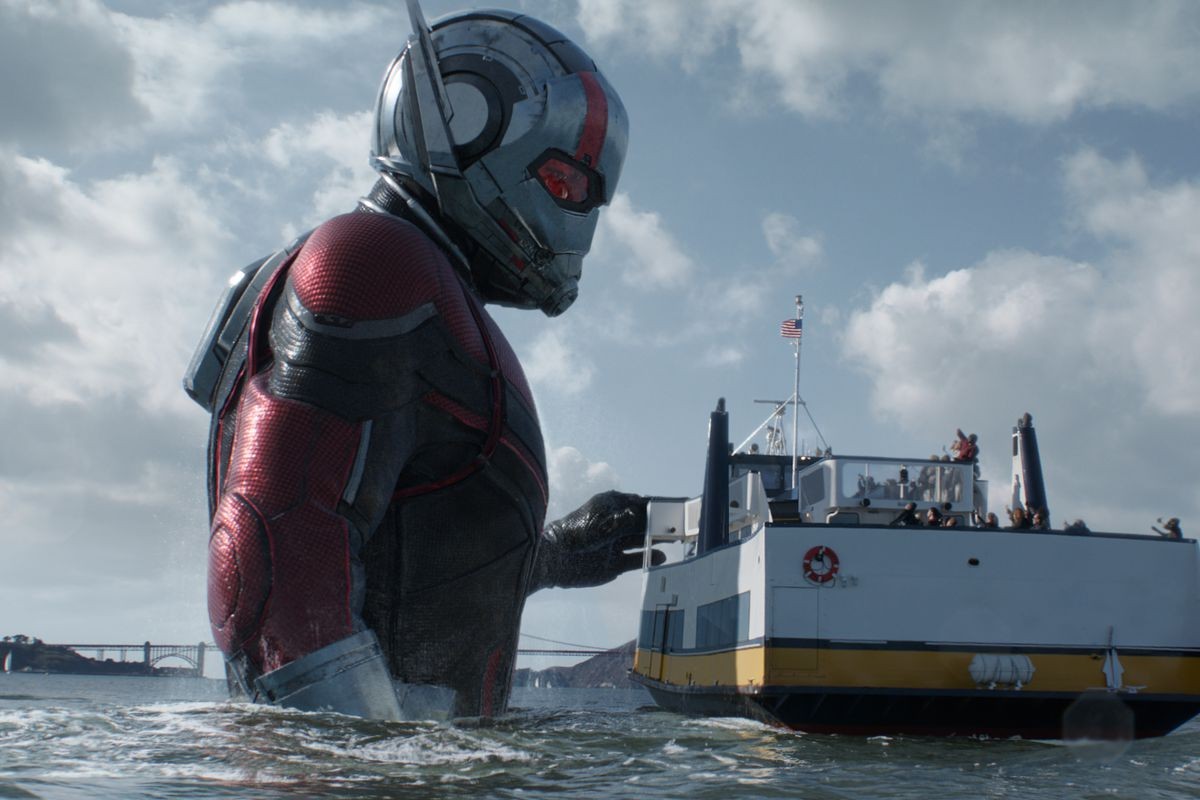
One of the problems with writing stories about superheroes is that they’re larger than life. That means the stakes must always be growing larger to give the overpowered protagonists a decent challenge. But after the fifth time you’ve seen someone save the world, you think maybe it isn’t that hard. The best Marvel stories turn out to the ones where the stakes are smaller, and the heroes alone. Ant-Man (Saturday, 9:55 p.m.) excels despite its flat lead because the conflict is almost beside the point. The real fun is the giddy special effects sequences that are like a jazzed-up version of The Incredible Shrinking Man.
3. The Evolving Hero
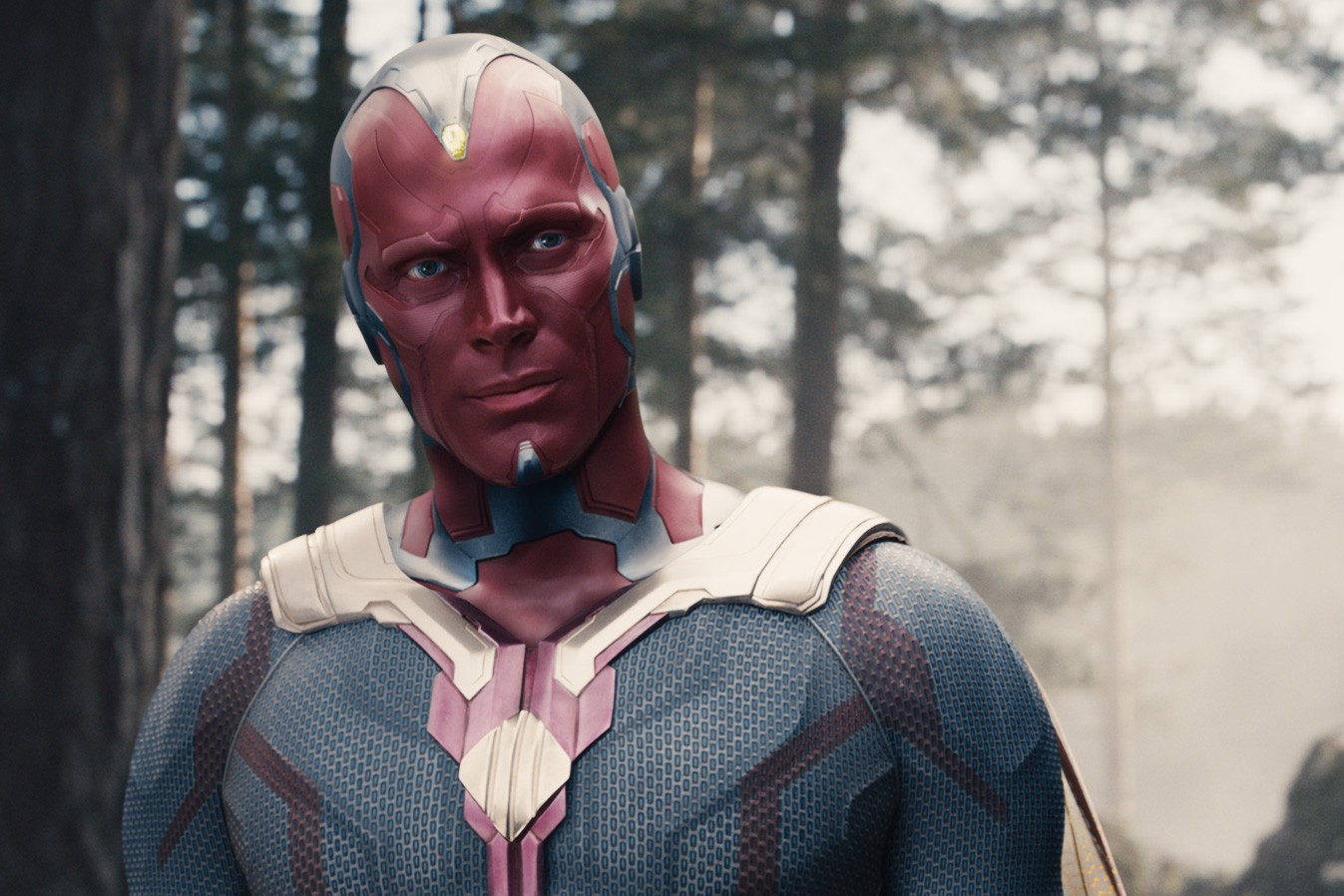
The creeping Batmanization of the world compels every lead character to be dark, tortured, and brooding. Only manly men who experience no pleasure in their lives can aspire to the title of hero. Marvel has resisted this, and their bread and butter has become redefining what a hero can be. In Captain America: Civil War (Saturday, 1 p.m.), Vision, played by Paul Bettany, wears a sensible sweater/oxford combo and cooks breakfast for his superpowered girlfriend Wanda Maximoff (Elisabeth Olsen). Then, in Avengers: Infinity War (Monday, 7 p.m.), he offers to sacrifice himself to save half the universe.
2. Killmonger Was Right

Why was Black Panther (Monday 3:40 p.m.) so good? The number one reason is that director Ryan Coogler did his homework and delivered a perfectly constructed action movie. Each scene builds on the last and leads to the next. And most importantly, both the hero Black Panther (the unbelievably charismatic Chadwick Boseman) and the villain Killmonger (the unbelievably charismatic Michael B. Jordan) have believable motivations and coherent cases to make for their sides. T’Challa is the king and defender of the status quo in Wakanda. They have been kept safe by their advanced technology for hundreds of years. But Killmonger rightly points out that while Wakanda has stayed safe, they have allowed the colonization and genocide of Africans outside their borders. Killmonger wants to use the power of Wakanda to rectify that situation and colonize the white world right back. Black Panther defeats Killmonger, but T’Challa is moved by his vision and opens Wakanda up to the world, hoping to make it a more just place. It’s a rare bit of moral complexity in a genre that is pretty much defined by its black and white ethical structure.
1. Captain America: The First Avenger

Coming in at number one on our countdown that is in no way an actual countdown is Captain America: The First Avenger (Friday 1 p.m.). Director Joe Johnson hits the superhero sweet spot with this Nazi-punching triumph. Johnson’s influence looms large over the Marvel Cinematic Universe. He is a special effects innovator whose debut film Honey I Shrunk The Kids, was basically a look book for Ant-Man. His 1990 film The Rocketeer, about a man who finds a super flight suit and battles Nazis in the 1930s, was a box office failure at the time, but provided a template for The First Avenger. Chris Evans, who had previously played The Human Torch in Sony’s failed Fantastic Four adaptation, gives a performance on par with Christopher Reeve’s Superman as the once-scrawny kid from Brooklyn who would become the moral center of the Avengers. The overriding theme of all of the Marvel movies is Stan Lee’s maxim “With great power comes great responsibility,” and no one sets a better example than Captain America.
